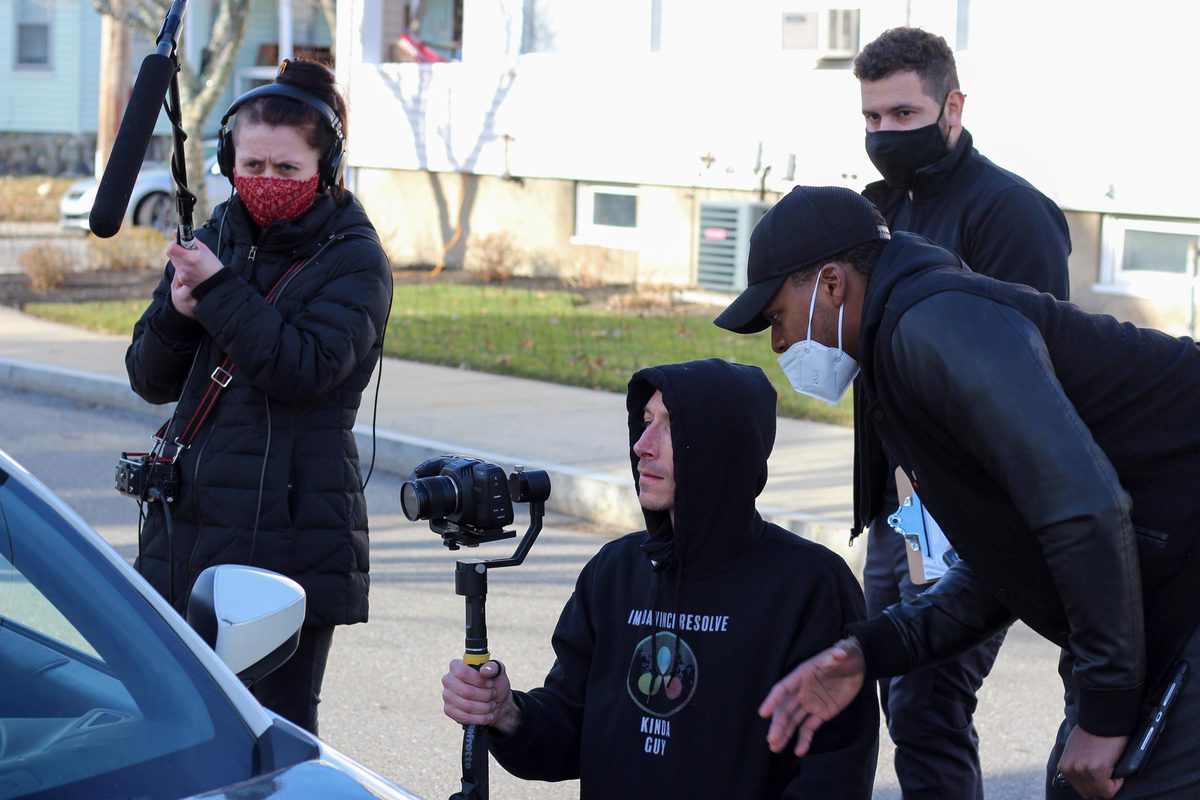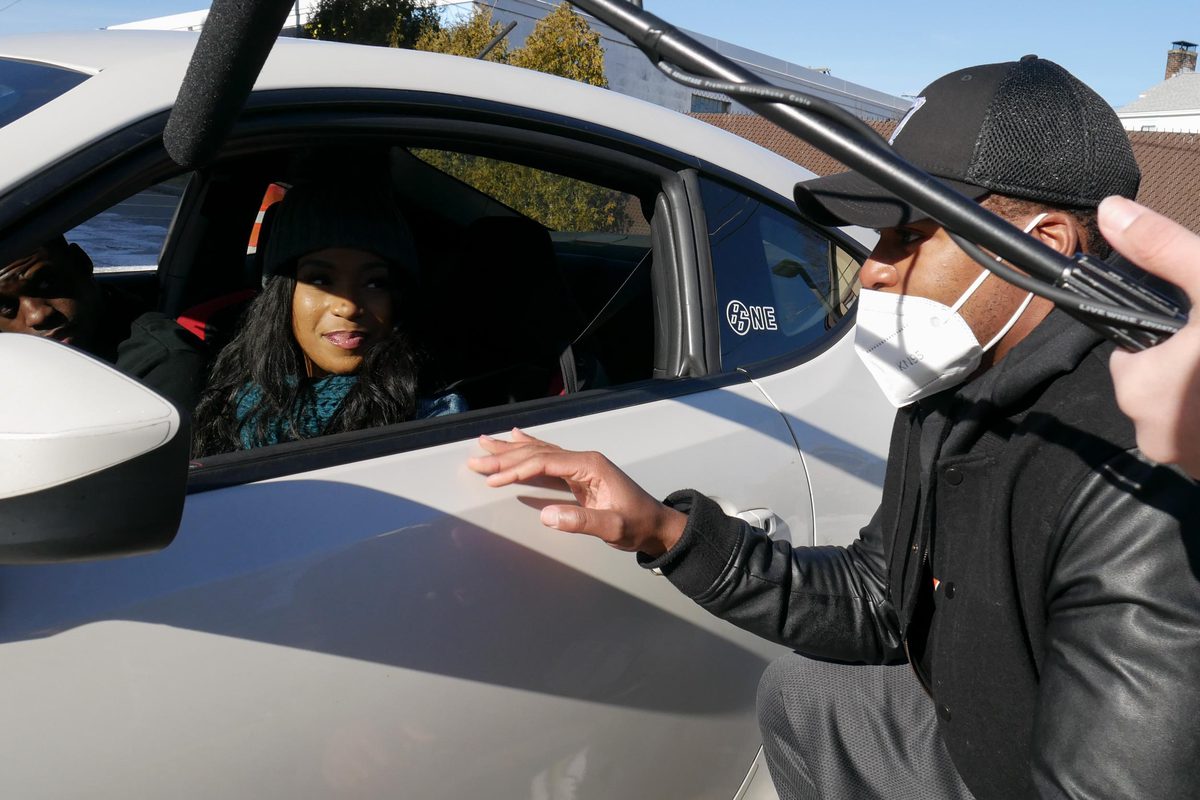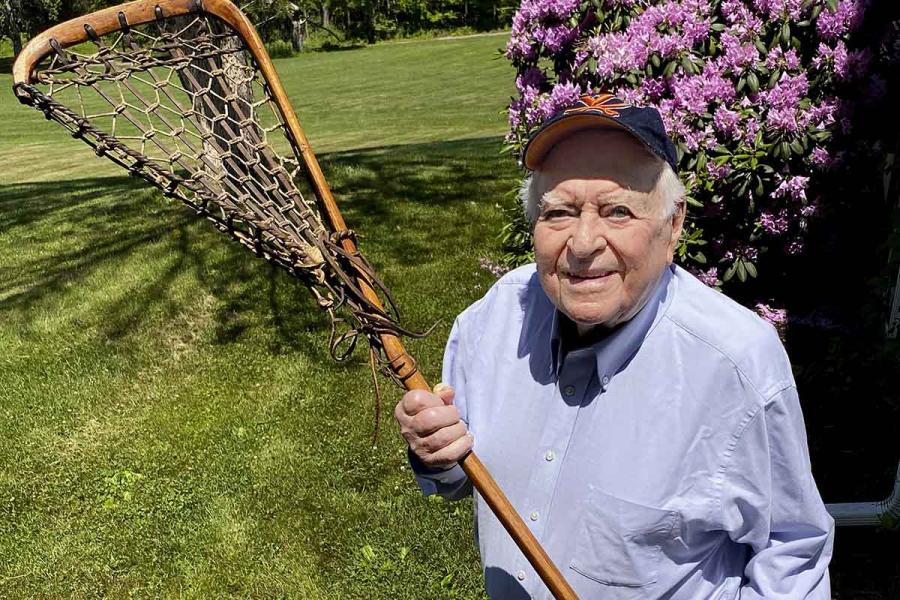With fond memories of his time in Garey and Stewart’s drama courses lingering in his head, Severin reached out to Pure Dice Films, a production company near his home, and asked if he could shadow a crew.
From the get-go, Severin was hooked. “I loved the way they worked – their preparation, their time management – and wanted to dive in deeper,” he said.
Eventually, Severin – who had saved money from his time at Robert Half – decided to take his biggest leap. He hired Pure Dice to produce “Lean In.”
“A lot of people are like, ‘How are you going to make money off it?’” Severin said. “That wasn’t even a thought, to get a return. It was like, ‘Let me see if I can put myself out there and express myself and make this film.’”
That was no simple task, as Severin suddenly found himself conducting auditions, scouting shooting locations and, when the time came, directing the film.
“A part of me was like, ‘What do I know about evaluating actors?’” Severin said. “But one thing I could do as the writer of the script was I knew how it should sound, what certain lines should sound like.
“Reading the lines with the auditioning actors, I knew which lines needed to pop and matched with what was in my mind. That was a really cool process and really humbling as well – the fact that I wrote a script and actors and actresses showed up.”
Read-throughs with actors reminded Severin of walk-throughs he was accustomed to on football game days. Instead of going over plays, they read over lines. The whole process felt natural, but daunting at the same time.
“I was like the guy running this thing and felt like, ‘This needs to have like a Coach Tomlin or Coach [Mike] London or Coach [Tony] Bennett feel,’” Severin said, smiling. “I was like, ‘I need to give a speech to the actors and actresses and crew.’
“I really came prepared and let them know, ‘If you’re in this room, you were chosen. You don’t need to prove anything anymore.’ I just wanted to instill in everyone’s mind that everyone there was capable and they had ability to make the movie pop, to make the film a good one. I was like, ‘If we all just channel our creativity the best we can, it will be a great experience.’
“As a first-time writer and director, I also let everyone know I was open to feedback. There were people with 30 years of experience in acting, so I just wanted to let it be known I was open to feedback and trying things different ways.”
“Lean In” is about two brothers who stopped talking to each other because of a disagreement they had years before. One of the brothers, with the encouragement of his wife and a therapist, is eventually able to let go of things holding him back and talk through the problem with the other brother.
“So many things can be handled with a conversation,” Severin said. “I’ve had situations in my life where there was tension with both parties, but if two people are willing to lean in and have some hard conversations, it’s amazing how quick things can squashed and things can be smoothed over.
“It almost became a quote in my life, where if I’m having a tough conversation with my brother or my dad or a teammate – anybody really – it’s like, ‘Let’s lean in, man, and handle this right now before it gets too big,’ because a lot of these things can grow and become a big problem.
“When somebody leans, it can make it easier for the other person to lean in as well. That’s what I wanted to show. I’m sure all of us have gone through relationships like that, where there is some kind of friction that is in the way of a fruitful relationship. That’s something that I wanted to capture.”
Severin did just that, according to Garey.
“I really loved that he shared the story of … the delicate and complicated relationships experienced by these brothers,” Garey said. “He really found their humanity, quiet struggle, and their joy, too. That sense of struggle and joy is so beautiful – a hard combo to grasp.”
Severin is in the process of submitting “Lean In” to other festivals. He would love to see it made into a feature-length film; he also has several other scripts he’d like to shoot.
As he looked back on how “Lean In” – and his film career – got started, Severin broke into a wide smile.
“It all came from a thought while riding on a train,” he said. “Now it’s getting some recognition. Recognition is cool, but I really believe it’s the story that really resonates.
“Getting messages from people who have watched the film saying, ‘I haven’t talked to my aunt in six years, but after watching this film I called her and now we’re getting coffee on Tuesday’ – that’s incredible. I’ve been in situations like that as well, so to hear that – that’s what it’s all about for me, to be honest.”







